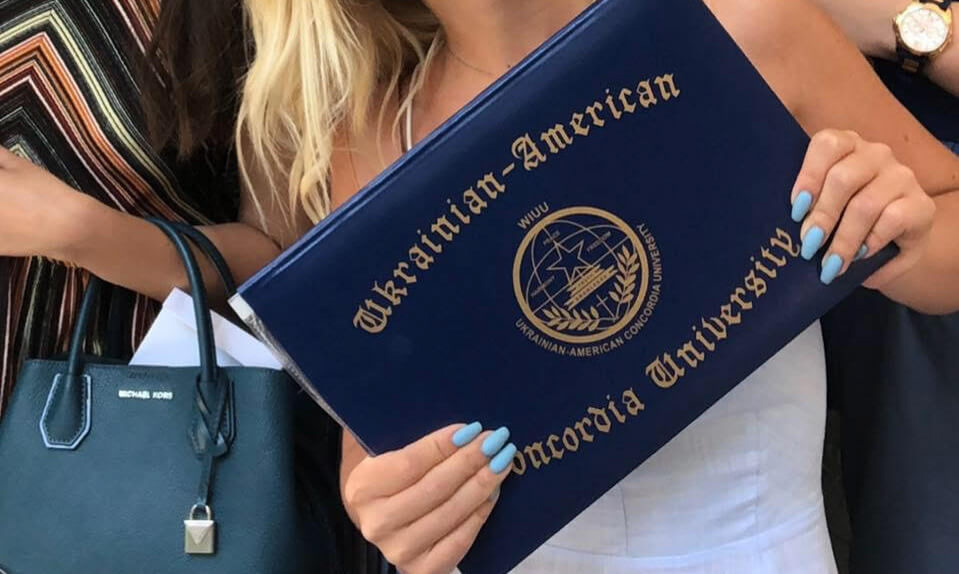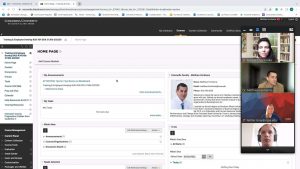
Concordia University continues to offer support to its partner university in Ukraine, most recently by waiving course fees in May and July for students impacted by the Russian invasion.

This week, 20 students began online business classes through CUWAA. Applications are still coming in for the July courses.
“This is a short-term solution but one we felt compelled to extend because of our Christian mission,” said Dean of Concordia’s Batterman and Haab Schools of Business Dr. Matt Hurtienne. “It’s an effort to help our Ukrainian students graduate on time, if possible, but also to give them the means of bettering themselves for a future that’s unknown to them in the present, to give them some semblance of control during a time when not much else is in their control.”
The free courses are available to any student who is currently enrolled at Ukrainian-American Concordia University (UACA), which Concordia’s former president, Rev. Dr. John Buuck, co-founded more than 23 years ago with Dr. Oleksandr Romanovskyi and his wife, Dr. Julia Romanovska. UACU had been based in Kyiv, Ukraine, but since the invasion, most of the school’s 70-plus employees and 600 students have fled the country.
Related: Concordia’s Ukrainian alumni, faculty, and school partners react to Russia invasion
The 20 students who began courses on Monday are pursuing business degrees at the undergraduate, graduate, and doctoral levels. They’re currently spread out throughout the world in locations including the Czech Republic, Ireland, Germany, and the United States. Some even registered with a Kyiv address, said Hurtienne, indicating they’re still in the midst of the turmoil.
Almost immediately after news of the Russian invasion hit, Hurtienne said he witnessed an earnest desire to help coming from many Concordia employees.
“I’m amazed at the amount of business faculty who came up to me and said they’d teach business classes for free to accommodate the Ukraine students, if needed,” Hurtienne said. “People who work behind the scenes added responsibilities to their plates without complaint, people like Tammy Ellison who has taken on a main role in facilitating communication and Tom Davilla who discovered how to use new university technology so the students can access our course.
“We had to deploy business concepts that forced us to be innovative and come up with a process that we didn’t previously have in place,” Hurtienne continued. “To be able to do all of this in a matter of a few weeks in an academic setting truly showed that people were really committed to Ukraine.”
Related: Concordia professor seeks path to U.S. for his Ukrainian parents
The timing seems to be right for the UACU community as well. Since the start of the turmoil, Hurtienne and several Concordia leaders have maintained close contact with Romanovskyi and other UACU leaders, and more recently, their focus has changed to “future thinking,” Hurtienne said.
“I felt like I was living with our Ukraine Partners, hearing their worries and concerns in real time,” Hurtienne said. “It’s been motiving to see that our discussions have switched from short-term survival to long-term planning. They’re just as passionate about their students as we are of us and we’re so honored to be able to play a small role in helping our brothers and sisters in Christ at this time.”
— This story is written by Kali Thiel. Kali was Director of University Communications until April, 2025.
If this story has inspired you, why not explore how you can help further Concordia's mission through giving.